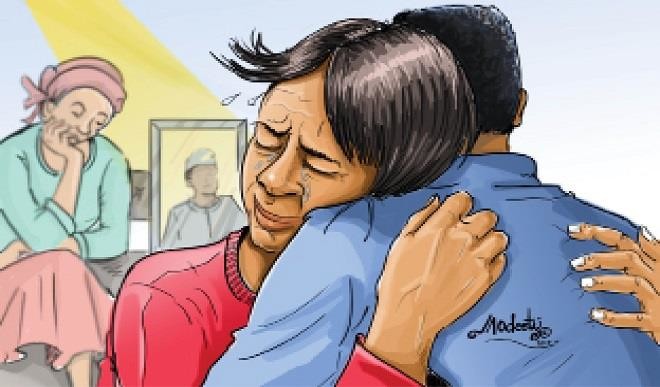How do you break news of a dead relative?
It is never a pleasant task to break bad news to a person not to talk of the news of death. The already bad news can become worse if you tell the relative at the wrong time or in the wrong way which can sometimes lead to catastrophic results. Megan Reid, a staff nurse in […]


It is never a pleasant task to break bad news to a person not to talk of the news of death. The already bad news can become worse if you tell the relative at the wrong time or in the wrong way which can sometimes lead to catastrophic results.
Megan Reid, a staff nurse in the intensive care unit of Royal Alexandra Hospital, Glasgow; Joan McDowell and Robert Hoskins, both lecturers in the Nursing & Healthcare school, Faculty of Medicine, University of Glasgow, wrote an article on ‘Breaking news of death to relatives’ and presented arguments on who should break the news of death.
Megan Reid et al wrote that doctors have the legal authority to certify death so the medical practitioner in charge of a patient informs relatives of the death.
Another school of thought opined that doctors communicating the news of death will usually be a complete stranger to the relatives. At this vulnerable time, it would be better to receive the news from an individual with whom they had established some sort of relationship and rapport, usually a member of the nursing staff.
LIFEXTRA asked Nigerians if there are best approaches to breaking bad news, especially that of death.
An online marketing expert, Ayo Solanke, said he’d rather not be the person to pass such news.
“If the dead person is our mutual relative, I would most likely allow another family member to break the news because that’s not one of my strengths.”
On the best medium of communication to use, Solanke said SMS, WhatsApp, Email followed by a phone call because “A text medium prepares the recipient emotionally through the shock.”
In a contrary view, a freelance creative writer, Damilola Jonathan Oladeji, opined that subtlety and diplomacy is core in breaking bad news, as such communication should be face-to face. “You should never break such news by letter or phone call because the persons involved could harm themselves or lose their minds.”
He said that when faced with such task in the Yoruba tradition, an elder or head in the family should “be the one in charge of breaking such news because anyone reporting the incidence goes straight to him.”
Damilola further explained how his people handle such situation. “The trauma is handled delicately, so usually relatives are invited to an emergency meeting. The meeting is made to sound casual, and when everyone is seated, the family head gives some words of wisdom to prepare the minds of the other relatives. Then he or she breaks the news. In most cases it would not be in the house of the relative that was lost.”
A medical doctor, Archibong Uduak, feels this is a sensitive issue as the person on the receiving end always remembers the sad event and the way it was announced, which makes it very important to be very careful while doing this.
Archibong enumerated some steps before conveying such message. He said you must ask yourself if you are the right person to convey the message as “no one wants an acquaintance informing them of the demise of a close relative just because the person stumbled on the information first.”
He advised choosing a time of the day when the person will be relaxed as “The timing is very important. With the evolution of technology, a phone conversation can be an alternative.”
He however warned against “small talks” and added that words should be rehearsed.
Lagos-based Uche Uwadinachi advocates for a one-on-one as “It shows more compassion and could better help to pacify the person.”
In summary the News of death will always never be received with happiness, as such knowing the relative’s temperament can aid when passing such sad news and it is worthy to note that teenagers and children grieve differently so the manner of delivery should be considered to suit each person.
